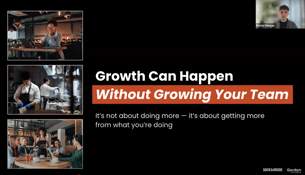Stories about your restaurant that appear in print, online, or on television are among the best kinds of promotion. You may see that coverage as free advertising, but in fact it’s probably better than advertising. Customers often have their guard up when they watch ads. When they’re watching a food TV show or reading a restaurant column, they’re more receptive to the story being told — even when the subject of the piece quietly helped to steer the script and inform the show or the article.
So how do you as a restaurant operator make your restaurant appealing to the reporters, columnists, bloggers, producers, and (increasingly) influencers who cover hospitality? You could win the social media lottery with a viral Instagram or TikTok post, potentially. You could try to do outreach yourself, cold-emailing newsrooms or sliding into some food photographer’s DMs. A few lucky restaurants can catch a reporter’s eye on their own. But if you wonder why certain chefs and kitchens seem to land glossy spreads and splashy headlines over and over again? There’s a great chance a professional publicist is working on the restaurant’s behalf behind the scenes, to take your restaurant marketing to the next level.
A public relations team’s role is to help you fit your story with the sorts of stories journalists and other producers are trying to find and broadcast. PR is distinct from advertising; you’ll hire someone else for that task (though sometimes from the same firm or shop where your PR team works). Rather than blasting mass-appeal messages into the world, your publicist specializes in connecting you with media to bring wanted attention to your restaurant.
Superficially, anyone can do that job. Your manager might tweet a thirst-trip photo of a grouper sandwich at a local food editor. Your hostess who majored in communications might take a swing at a press release to a travel blog. No harm in trying, right? Be careful about taking too many wild swings. Reporters love to delete promo emails, doubly so if those contain errors or are addressed to the wrong person or department. Better to develop the kinds of relationships with media that can result in great stories. That takes time and a certain touch.
“You need someone to help you craft your message,” says Angel Powell, the founder of South City PR in Charleston, South Carolina. Your brand isn’t just a restaurant, it’s a place with a story. How you share that story will shape how people think about your brand and interact with it. “It’s all about telling people who you are and what makes you special in the market so you can stand out in a crowded field,” Powell says.
Ready to find a firm to help you build buzz for your brand? Here are some tips for how to find a suitable public relations team and for how to get the most out of your relationship. It’s going to be work, with a payoff.
Finding the right PR team for your restaurant
Your restaurant probably gets a great deal of its business via word of mouth. Well, same with your PR counterparts. Love the coverage of another restaurant in your area? Find out who represents them. Or feel out from others in the F&B industry what they’ve heard about particular agencies. Ask which firms your peers have enjoyed working with, and think about which businesses you’d like to emulate.
Once you have an agency in mind, vet them. Ashley Zink, the managing director of Sprouthouse Agency, a southeastern public relations firm specializing in the hospitality industry, says it’s important to check out the agency’s website and the social media presence to see if you would want to be in the company of other businesses they represent.
Once you consider signing with a firm, your next step is to find out the specific person you’ll be working with. The owner may be the one closing the deal with you, but the specific account manager will be your closest partner on this journey. That should be a person you click with, and someone who feels comfortable giving you honest feedback.
“An analogy we use a lot is that an agency partnership is like a marriage — you get out of it what you put into it,” says Zink. “At the end of the day, an agency partner should be looking out for your business and doing everything they can to help make it be the best possible. Even if that means telling you things you don’t want to hear.”
What a PR professional costs for your restaurant
A new restaurateur might hear the words PR firm and start to shiver imagining the cost, but agency fees vary especially in smaller markets. The right PR firm for you might be more affordable than you think, especially if you hire them on a project basis. “A lot depends on what you’re asking the agency to do, or what we call the scope of work,” Zink says. “Do you want them to work on getting your business in national media outlets, not just local and regional press? Are you looking for an agency to handle influencer partnerships? Running social media accounts and handling community management? All of those things factor into the price tag.”
In short, arrive ready to negotiate, and a shop may well be able to accommodate your budget. You can negotiate a contract to last a year or two, or you might opt for project-based work with defined goals.
A short contract option may sound ideal. But the drawback is the same as the advantage: once it’s done, it’s done. It can happen that a firm succeeds in building some buzz, but their contract ends just as you start hearing from reporters. Now who is there to help facilitate interviews, photoshoots, or supplied images? “It kind of leaves everybody in a weird position,” Powell says. In a worst-case scenario, a publication might abandon a possible story if communication falls apart.
How to get the most out of your PR team
On the flip side, say you do commit to a public relations agency and you’re ready to see results. That’s great. But remember, this is a marriage, not a casual fling. Both parties will ultimately be responsible for its success.
“Restaurant teams need to understand that there will be work involved on their end in order to generate the results they seek,” Zink says. “If you’re not willing to make time to respond to a media request, snap a photo of a dish, or share a recipe on short notice, then you’re not going to get much out of working with a PR firm.”
It’s also important to manage your expectations. Unlike “paid media,” such as advertising, “earned media” has a different set of rules. You and your PR team can exert some influence over the final product, but ultimately none of you can control a story that a reporter, photographer, and editors make their own.
“There’s a lot of trust involved,” Zink says. “You’re not always going to be able to directly track the ROI (return on investment) of retaining an agency partner. That being said, there are certainly ways to tell if the agency is a good fit for you. Do they understand your industry and market? Are they responsive and professional? Do you like the people you meet with? Do they have a good reputation? All of those factors are good indicators.”
To make sure you make inroads with the places you and your PR team decide to pitch, it’s important to work together. This might seem like a hassle — what are you paying these people for, after all? — but ultimately you’ll get the best results when you find a balance of working with your PR team without encroaching on their expertise.
“I always find that we get the best results for people who communicate with us the most,” Powell says. “I've definitely had clients who have come to me and said, ‘Oh, we're just not getting enough coverage.’ My response to that is usually we've presented you with eight different opportunities this month, and you've said no to each one, or said ‘I don’t have time to answer that.’ All we can do is pitch, but you have to be there to deliver what the publication is looking for or you're going to miss out on the press.”
When is the right time to hire a PR firm?
For many restaurants, the best time to hire a public relations team is yesterday. In an ideal world, Zink says, a restaurant would have a team on the case a few months before even opening. “Media tend to favor covering what’s new,” she says, “and you’re only new once.”
If you’re no longer new, well, that requires a different strategy, to drum up attention. But that, too, is where a PR professional should be earning their keep. “That’s where we come in to keep that editorial momentum going,” Powell says.
Once you get some of that attention, whether as part of a steady plan or all at once, the role of a PR manager might shift. “An agency partner can help manage some of the usual opening chaos like photo shoots, getting a website and social media platforms up and running, helping you figure out how to verbalize your vision for the concept in interviews,” Zink says. “And a bunch of other things you’d rather not have to deal with.”
[Photo by Jesson Mata on Unsplash]





